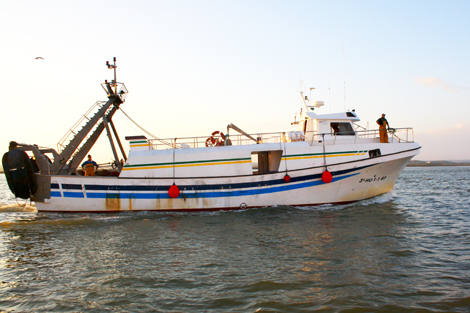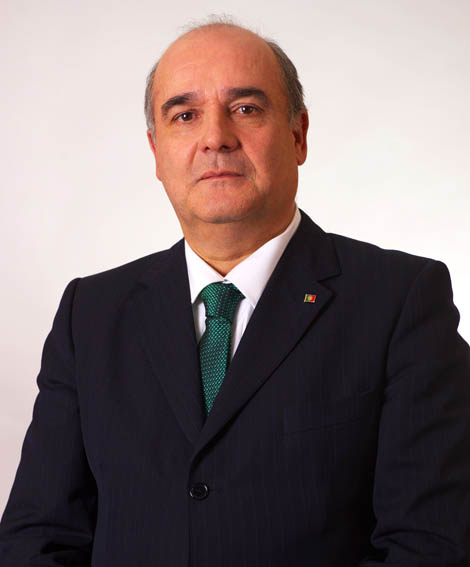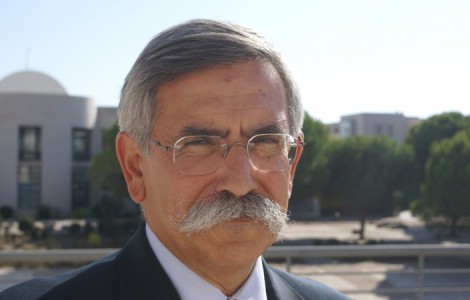 Less bureaucracy and streamlining of processes that encourage investment, as well as an increase in the transfer of knowledge from universities to the productive sector, were two of the points most highlighted by those who participated this Wednesday in the debate on the National Strategy for the Sea 2013 -2020, which took place at the University of Algarve (UAlg).
Less bureaucracy and streamlining of processes that encourage investment, as well as an increase in the transfer of knowledge from universities to the productive sector, were two of the points most highlighted by those who participated this Wednesday in the debate on the National Strategy for the Sea 2013 -2020, which took place at the University of Algarve (UAlg).
A document that is under public discussion until the 31st of May and for which the Government is asking everyone's contribution. To make this possible, the Secretary of State for the Sea is promoting local sessions in various regions of the country, to extend this discussion to civil society and the scientific community.
“The fundamental objective is to make the Sea a national plan, which is what is written in the vision contained in the document under public discussion. And then, there is a set of goals outlined, to achieve this goal, some quantifiable for the evolution of the GDP and others that are not, but which have to do with the national maritime identity, scientific production and the role of Portugal at the level international”, included the Secretary of State for the Sea Manuel Pinto de Abreu on the sidelines of the session.
 «The strategy contains a series of programs and projects, it contains the identification of fundamental lines of action and support. What we want is that the Portuguese look at this strategy, identify with it and contribute, so that [the document] integrates the vision and action they want for the Sea. We want all the Portuguese to participate in the discussion of this strategy », summarized the member of the Government.
«The strategy contains a series of programs and projects, it contains the identification of fundamental lines of action and support. What we want is that the Portuguese look at this strategy, identify with it and contribute, so that [the document] integrates the vision and action they want for the Sea. We want all the Portuguese to participate in the discussion of this strategy », summarized the member of the Government.
The Secretary of State for the Sea recalled that this first phase of public discussion, "for the approval of the strategy and its application, ends on May 31." "But, in the future, a channel will be permanently open in the Directorate General for the Policy of the Sea to receive contributions from the Portuguese", he guaranteed. "Then there will be one or two moments throughout the year when it will be decided whether what is proposed is included," he added.
The document now under public discussion provides for regional segmentation, although it does not yet contain concrete proposals for the different Portuguese regions. “In the body of the strategy, it is said that what is foreseen there is the national vision, which needs to be complemented with the regional, local and even the singular citizen's vision”, he said.
Less bureaucracy, more knowledge
 «What the associations brought here were, essentially, problems related to costs and context constraints, licensing, bureaucratic problems and surveillance», summarized, also on the sidelines of the session, the rector of the University of Algarve João Guerreiro.
«What the associations brought here were, essentially, problems related to costs and context constraints, licensing, bureaucratic problems and surveillance», summarized, also on the sidelines of the session, the rector of the University of Algarve João Guerreiro.
"These are problems that concern the administration, even though universities can survey the constraints and propose forms of organization that are more facilitating and friendly to productive activity," said João Guerreiro.
“It is a matter that is being dealt with. A meeting is taking place today to resolve some of these aspects. But, of course, the solutions have to be considered, to give good results», assured, on the other hand, Manuel Pinto de Abreu.
The member of the Government gives the example of the fisheries sector, where participation is being called for «the whole row of fish, so that the solutions are adapted to what is the vision of the sector itself and what are the demands that we have. to put in the documents we produce».
As for the transfer of knowledge from the academies to the productive fabric, João Guerreiro considers that it is what can «give solid body to the strategy of the sea».
«The strategy for the Sea has put on the table the need for greater cooperation, greater convergence, between scientific production and activities to enhance resources and the services that the sea provides», he considered.
The dean of UAlg admitted that some of the investigation carried out «had no impact on national productive dynamics, sales of services and products», a reality that the strategy intends to change.
There will be more opportunity to raise funds to invest in the Sea
Opportunities to raise funds to support investment in the sea area will increase, «namely at European level», revealed Manuel Pinto de Abreu. “Previously, the European Union did not have a fund that recognized the Integrated Maritime Policy, which it currently has. In addition to the fund dedicated to fisheries, which is maintained», he said.
The possibilities of obtaining financing are not exhausted here, as there are "instruments linked to ocean basins, namely the Mediterranean and other instruments that allow access to funds that normally were not of direct use".
“The new regulation for the use of European funds opens up a much greater framework of perspectives and possibilities for funding. Now, we have to be able to compete and guarantee this funding, something that will be proportional to the capacity we show and the determination we have», summarized the Secretary of State for the Sea.
Between 2013 and 2020, "an investment from the State Budget of about 400 million" is foreseen in the Economy of the Sea, an amount similar to that which will be available, linked to the funds for the Sea and Fisheries of the European Union. “A fund for the Mediterranean Basin of around 800 to a billion is currently under discussion”, to which “related funds” are added, he revealed. In other words, there will be a global cake of more than 1,5 billion euros, most of which will be directly allocated to Portugal.

















Comments